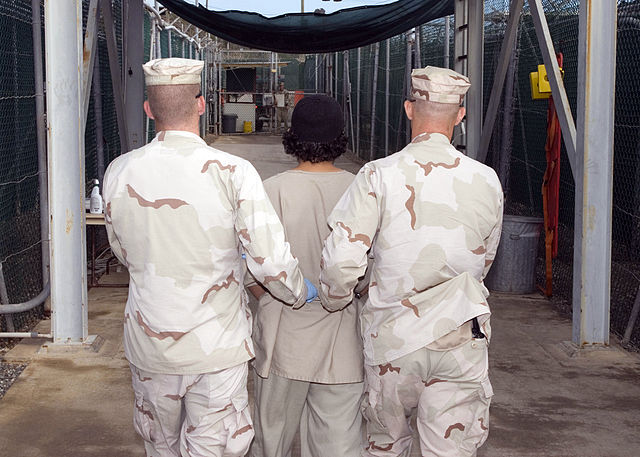by Derek Davison
The CIA and the Senate Select Committee on Intelligence (SSCI) have been embroiled for several weeks in a dispute over the declassification of a sweeping Senate report, the product of an investigation into the George W. Bush-era CIA’s so-called “enhanced interrogation” program. The SSCI’s chair, Senator Dianne Feinstein (D-CA), has accused the CIA of removing documents related to the investigation from the committee’s computers, and of attempting to intimidate committee staffers by requesting a Justice Department review into how the committee was able to obtain an internal CIA review of the program. Now, as the White House and CIA review the SSCI report for declassification, its major findings have been leaked to the public, and they reveal that the CIA’s use of enhanced interrogation techniques, and the conditions under which it held its detainees, were “brutal and far worse than the agency communicated to policymakers.”
While the public still does not know what the committee’s report says (the committee voted 11-3 on April 3 to declassify its executive summary and conclusions, but the CIA and White House must conduct a final review before it can be released), members of the committee have talked openly about its findings. Senator John McCain said that the report “confirms…that the cruel, inhuman and degrading treatment of prisoners is not only wrong in principle and a stain on our country’s conscience, but also an ineffective and unreliable means of gathering intelligence.” Defenders of the program, like Fox News contributor Liz Cheney, argue that it produced important intelligence that helped the United States to thwart terrorist plots and to degrade Al-Qaeda’s capacity to sponsor further attacks, but what we know of the findings of the SSCI report contradicts that argument. Not that it should matter; any debate over the enhanced interrogation program must, as Vincent Warren of the Center for Constitutional Rights has argued, reckon the morality of torture, not its effectiveness.
It is torture that we’re talking about, euphemisms like “enhanced interrogation” aside. In a remarkable editorial in the April 11 Washington Post, former contract interrogator Eric Fair described what he saw and did during his time in Iraq:
In April 2004 I was stationed at a detention facility in Fallujah. Inside the detention facility was an office. Inside the office was a small chair made of plywood and two-by-fours. The chair was two feet tall. The rear legs were taller than the front legs. The seat and chair back leaned forward. Plastic zip ties were used to force a detainee into a crouched position from which he could not recover. It caused muscle failure of the quads, hamstrings and calves. It was torture.
Fair concludes that the “stain” of the torture program demands a full accounting, for the sake of the nation as well as those who participated in the program directly.
History tells us that we should not be surprised by the Obama administration’s reluctance to fully investigate allegations of wrongdoing by its predecessor. Barack Obama made it very clear, even before he took office, that he preferred to “look forward as opposed to looking backward” when it came to the subject of investigating potential Bush administration crimes, and he has adhered to that position over the past five-plus years.
Obama is not the first president to turn a blind eye to possible transgressions by a former administration. The obvious example of this phenomenon was Gerald Ford’s decision to pardon Richard Nixon for any crimes related to the Watergate scandal, in 1974. But Ford had been Nixon’s Vice-President, making his act somewhat understandable. Bill Clinton’s decision not to investigate alleged crimes that took place under the Reagan and George H.W. Bush administrations was, as Robert Parry notes, motivated by the same desire to focus on advancing his own agenda, to “look forward as opposed to looking backward,” which Obama intimated as president-elect.
While it may behoove a particular administration to avoid the appearance of vindictiveness toward previous administrations, the decision not to investigate something as pernicious as the officially sanctioned torture of prisoners sacrifices the US’ credibility in the long run. It should not go unnoticed, for example, that while the US Ambassador to Kosovo is urging that nation to conduct a tribunal over the issue of organ trafficking by Kosovar Albanian militias in order to “build up its international credibility,” two branches of the US government are openly at odds over whether to even publicly acknowledge the past abuses of our “interrogation” program. It probably doesn’t go unnoticed that while the US refuses to reckon with its abuse of detainees, it is also refusing to issue a visa to Iran’s newly appointed UN Ambassador on the grounds that he was a background participant in the 1979 takeover of the US embassy in Tehran (he’s now part of Iran’s “reformist” camp). If the US can’t honestly reflect on its own past, how does it have the standing to demand the same of other nations?
The CIA’s resistance to a candid assessment of its torture program, even under an administration that firmly and officially disavowed that program upon taking office, speaks to an overall unwillingness to face accountability for any excesses wrought by the US’ ongoing “War on Terror.” While the Senate has investigated the failures in pre-war intelligence that led to the Iraq War, there has been no consequence to anyone involved in those failures. It is safe to say that there will be no consequences for anyone involved in the torture program as well, given the Obama administration’s deference to CIA efforts to stonewall even the release of a report detailing what actually took place.
It is impossible to imagine, then, that any future administration will have any interest in reckoning with other morally and legally questionable national security policies of this period, like the use of drones or the enlargement of the surveillance state. When it comes to the “War on Terror,” the rule seems to be “what’s past is past.”






This country used to believe the slogan: “Crime does not pay”, wev were taught that in public school while growing up. Of course today, that slogan no longer holds true, unless one is of the lower income brackets.
So far this century, the U.S. Government has disgraced the country by its disgusting tactics employed against members of other countries, without going into specifics. What is equally sad, is the generation[s] that believe such behavior is legal, O.K., justified. What a shame this brings upon the rest of the population.